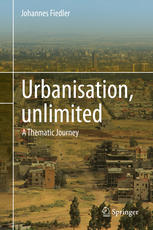

Most ebook files are in PDF format, so you can easily read them using various software such as Foxit Reader or directly on the Google Chrome browser.
Some ebook files are released by publishers in other formats such as .awz, .mobi, .epub, .fb2, etc. You may need to install specific software to read these formats on mobile/PC, such as Calibre.
Please read the tutorial at this link: https://ebookbell.com/faq
We offer FREE conversion to the popular formats you request; however, this may take some time. Therefore, right after payment, please email us, and we will try to provide the service as quickly as possible.
For some exceptional file formats or broken links (if any), please refrain from opening any disputes. Instead, email us first, and we will try to assist within a maximum of 6 hours.
EbookBell Team

4.1
40 reviewsIn a series of essays, the process of urbanisation – a human mega-trend acquiring unprecedented scale and speed as globalisation proceeds – is examined in the most diverse contexts and stages of development. Drawing on scientific references and identifying recurring themes like dispersion, privatisation and vitality, Fiedler devises the glossary for a cross-cultural understanding of the global urban system emerging. Images and anecdotal evidence reconnect these themes to local realities. The tone of the essays conveys a post-voluntarist attitude, derived from many years of professional experience – critical of both neoliberal practices and determinist ideas.
To “condemn the reality” of global urbanization “is fruitless”, writes Johannes Fiedler in this unlimited view of a world of constant motion, subject no longer to just its planetary rotations, but also to the constant push and pull of its various populations, some of whose giant constructions shift the earth’s axis.
From the foreword by Lars Lerup